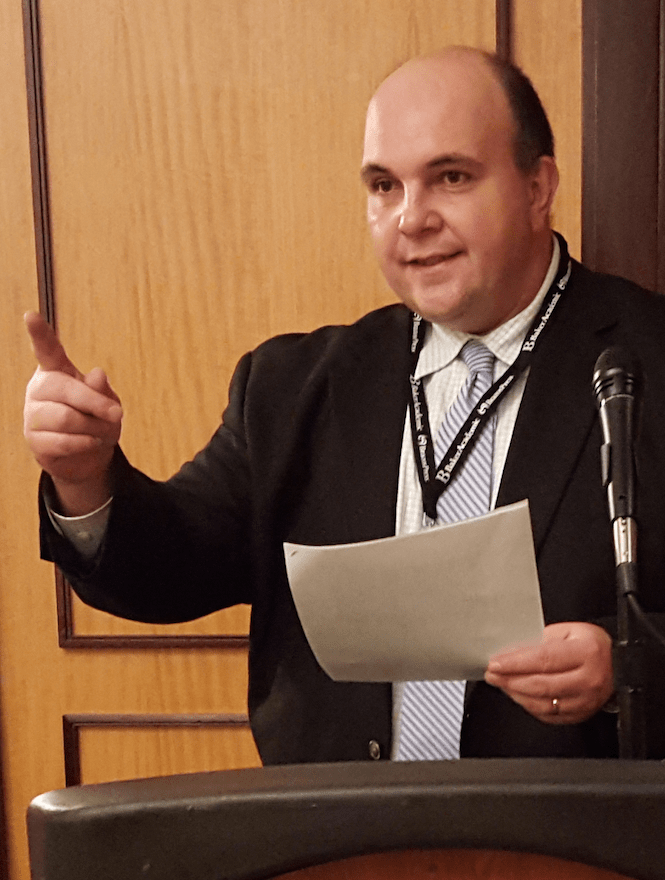What’s the best book you read in 2018? We posed this question to our Intersect contributors, and we’ve shared their recommendations in recent weeks. (Read list 1, list 2, list 3, list 4, list 5, list 6 and list 7.)
Today, Intersect contributors highlight books on crisis leadership, misreading scripture, theological education, justice and more.
Editor’s Note: You can download two Intersect-exclusive ebooks from Bruce Ashford for free. Details>>
The Justice Calling: Where Passion Meets Perseverance
by Bethany Hanke Hoang and Kristen Deede Johnson (Brazos, 2017)

Alysha Clark: Hoang and Johnson communicate the biblical idea of justice by tracing the theme across the biblical narrative. They push the reader to first see God as the author of justice and to find his or her value as a worshipper of God before jumping in to take action—then they encourage the reader to find practical ways to live out biblical justice both locally and globally. Every story of someone helped by IJM is deeply moving, but their description of God and his work in the world is even more riveting.
They push the reader to first see God as the author of justice and to find his or her value as a worshipper of God before jumping in to take action—then they encourage the reader to find practical ways to live out biblical justice both locally and globally. Every story of someone helped by IJM is deeply moving, but their description of God and his work in the world is even more riveting.
(Editor’s Note: Watch Kristen Deede Johnson’s lecture on a biblical theology of justice.)
Drudgery Divine: On the Comparison of Early Christianities and the Religions of Late Antiquity
by Jonathan Z. Smith (University of Chicago Press, 1990)

Gregory Lamb: This book does much to destroy arguments against the validity of the methodology of comparative analysis in biblical studies. Smith adroitly and succinctly surveys the problematic origins of comparative analysis in apologetic and genealogical works (esp. those source critical studies within the Religionsgeschichtliche Schüle), argues for the viability of the method, and paves the way forward for scholars wishing to perform comparative analysis. As a result of Smith’s helpful, pioneering work, there has been a resurgence of comparative analysis inquiries in biblical studies over the past three decades.
Misreading Scripture with Western Eyes
by E. Randolph Richards and Brandon J. O’Brien (IVP, 2012)

Casey Evans: This book gave fantastic insights into the way we, as Americans, approach Scripture and often impose our worldview onto a people and culture that does not share our worldview.
It challenges many of the categories that we hold to and discusses – as well as teaches – many of the differences between our culture and the different biblical cultures. It fleshes out ideals that we take for granted, and it allows us to read Scripture in a new light.
Theology, Church, and Ministry: A Handbook for Theological Education
edited by David S. Dockery (B&H Academic, 2017)

Cameron Armstrong: Dockery assembles an impressive cadre of educators from various theological schools and disciplines who clearly love what they teach (biblical doctrine), who they teach (the Church), and the primary subject about Whom they teach (God).
Every chapter points to the primary theme of theological education as a holy endeavor to equip the church. As theological education’s relevance becomes more and more scrutinized, I expect this book will be a resource to which proponents will often turn.
Chief Crisis Officer: Structure and Leadership for Effective Communications Response
by James F. Haggerty (American Bar Association, 2017)

Sam Morris: While not a Christian book, this was a helpful book in considering how an institution – whether it be a church or non-profit ministry – can develop some strategies to be well equipped for when a crisis occurs.
Not every organization will be able to hire a Chief Crisis Officer, but every institution can wisely prepare for crisis.
What was your favorite book of 2018? Comment below and let us know!





No comments have been added.